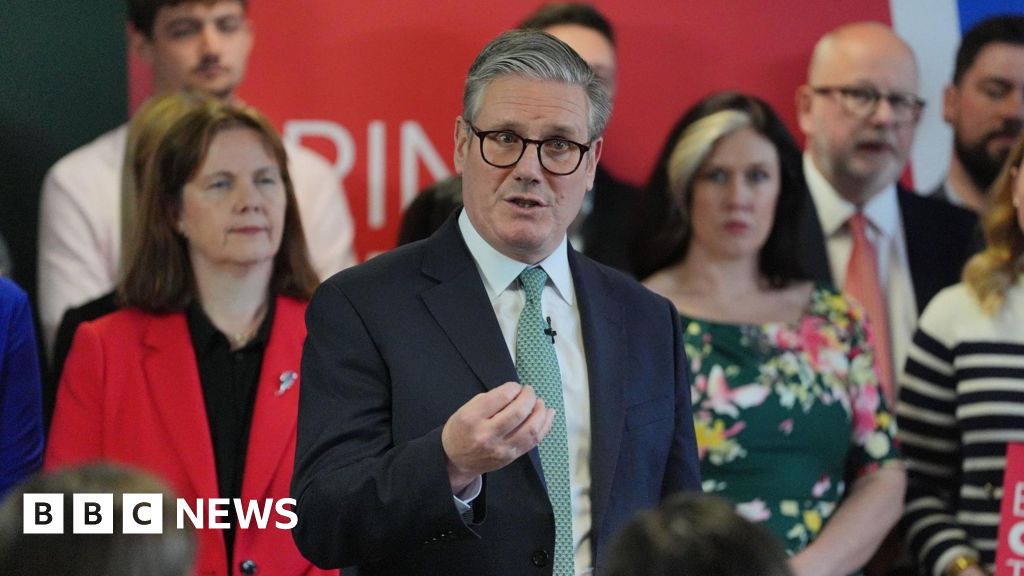Labour Promises 'Change' at Local Election Launch

In a spirited rally held in Derbyshire, Prime Minister Sir Keir Starmer launched the Labour Party's local election campaign, urging voters to embrace the call for transformation within their communities as the elections scheduled for May 1 approach. This pivotal moment marks the first major electoral challenge for Labour since their remarkable victory in the general elections last July, where the party managed to secure substantial power. However, recent months have seen a noticeable decline in popularity for Labour, creating a more daunting landscape as they prepare for this election.
At the event, Sir Keir emphasized the need for local councils to collaborate closely with the government to implement essential changes, reiterating commitments to reinstate community policing, revitalise local High Streets, and address the pervasive issue of potholes that have plagued many roads across the country. Acknowledging the ongoing struggles faced by many families due to the rising cost of living, the Prime Minister highlighted positive moves made by his government, such as increases in the minimum wage, a reduction in NHS waiting lists, and cuts to fuel duties, asserting that these initiatives signify tangible progress.
Sir Keir did not shy away from criticizing the Conservative councils, labeling them as “tired” and accusing them of creating obstacles that hinder Britain’s potential for growth. He passionately stated, “Last year, the general election was that opportunity to vote for change for the country. This year, the local elections are the chance to vote for change in your community.” This sentiment was echoed by Labour’s Deputy Leader Angela Rayner, who condemned Conservative councils for allowing public services to deteriorate. She declared, “That is why we need great Labour mayors, leaders, and councillors delivering the change across our great towns, cities, and counties, so that we can transform the lives of people at a local level.”
As the elections draw near, voters will cast their ballots in 23 councils, along with mayoral elections in regions including the West of England, Cambridgeshire and Peterborough, and, for the first time, Hull and East Yorkshire as well as Greater Lincolnshire. Notably, Labour is also preparing for a by-election in Runcorn and Helsby, following the resignation of former Labour MP Mike Amesbury after his conviction for assaulting a constituent.
Originally, elections were slated to take place for 21 county councils across England. However, last month, the government announced that local elections would be postponed in nine regions undergoing council reorganization. In this upcoming election cycle, the Conservatives are in a position to defend the majority of seats, a stark contrast to the last election in 2021 when then-Prime Minister Boris Johnson enjoyed a significant boost in popularity due to the successful rollout of the Covid vaccine.
Labour is eyeing potential gains in areas such as Durham and Nottinghamshire, regions where the party made significant inroads during the last general election. Nonetheless, they face a challenging economic environment, particularly in light of recent announcements by Chancellor Rachel Reeves regarding substantial cuts to benefits amidst increasing pressure on public spending.
Adding to the uncertainty, on Wednesday, former US President Donald Trump revealed new global tariffs that could adversely impact the UK's economic growth, threatening to erode the financial leeway that Chancellor Reeves has to adhere to her spending and borrowing targets. With the backdrop of these economic challenges, the Labour Party is keenly aware that their forthcoming campaign will not only be a test of their policies but also a vital opportunity to resonate with voters who are seeking change.




























